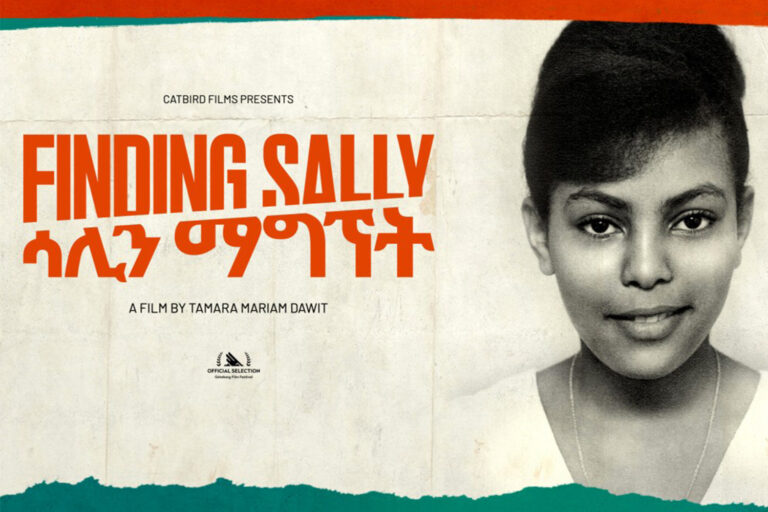By Mohammed Usman Darasa
Building a better system of voting which grants more Democratic tools to the people are considered to be a vital precursor the Culture Constitutionalism and establishment of Constitutional Democracy. Genuine aspirations towards this direction would not be an achievable end unless and otherwise supported by constitutionally guaranteed and practically realistic sets of fundamental voting rights, which might include amongst many other rights the rights to Recall and Reject. In particular, these two public empowerment rights need to be considered and adopted by the Constitutions of infant Democracies like Ethiopia.
True enough that political that Ethiopia will have to consider to more direct and effective rights vested in the vote than merely a choice to “select one of the following”. Innovation and political ingenuity would have to be carefully deployed to evolve a mechanism where people can reward and reprimand their representatives in a better way and exert choices, not throughout earlier. The quest is also to make the vote more powerful and an effective means of conveying the foremost message of Democracy. The underlying expectation here is that when people get a real sense of choice with checks and balances, their participation and enthusiasm will be substantially increased.
In such a way, this work has focused on these two revolutionary voting rights which hold the key for transforming our Constitutional Democracy to the standard and more even could be taken as a milestone for Africa and beyond. The following discussions have devoted to these two-fold – rights.
THE RIGHT TO REJECT
Many Democratic tools like systems of voting and voting rights have been discussed and debated among the experts, in various parts of the world. These include ranking based voting, negative voting, multiple preferences and the option to choose ‘none of the above (or NOTA). This part will briefly discuss the last of these (The NOTA)
Indeed, voting has to have an additional power to go more selection; it also needs to empower voters with the choice to reject the candidates. The NOTA option could also be justified just an aspect of citizens’ empowerment right to reject all candidates
In a true Democracy, citizens can be given a choice as an opportunity to express themselves unrestrictedly and in an unrestricted way as possible.
Many Nations and States around the world follow the policy of granting voters the option of rejecting all candidates in different versions.
In most of these cases, it exists as a clear and distinct option on the ballot paper itself. For instance, Switzerland, Spain, France and Belgium offers a Blanc vote option. These votes, though not stamped in favour of any candidate, are counted and to be reported.
Moreover, in the state of Nevada in the USA (None of these candidates), Ukraine (has ‘against all option), France has the vote ‘the Blanc, option, ‘Spain veto in’ veto en Blanco’, and Russia also has ‘against all’ option in its system of voting for long.
Perhaps, the best example among all is the state of Massachusetts in the USA and the South American nation of Colombia, where the negative vote is of significant consequence. In Colombia, if the blank votes (none of the above) get a majority, then the elections are to hold again.
Similarly, in 2006, Massachusetts included ‘ none of the above for a new election ‘ as an option. The majority of votes cast in this option meant re-poll with the entire set of all contesting candidates out of the re-poll.
In this regard, article 258 of the Constitution of Colombia which deals with the issue as follows:
“…when the blank votes constitute a majority of the total valid votes in the ballot to elect the members of the public corporation, governor, mayor or in the first-round presidential elections, the election should be repeated one”.
In the same way, an inclusion of NOTA into the FDRE Constitution is suggested as one of the better voting reforms which need serious consideration in Ethiopia, we need to establish a voting a system which gives greater say to the citizens’.
Indeed, the addition of such more dynamic tools into the voting system will further empower the people (voters).
As the same time, this would also serve as a mechanism to remove incompetents and bring fresh talents into the governance system of the country– at all levels. Such a system would intrinsically powerful enough to bring local level democratic reforms where the monopoly of the few power the mighty could be democratically countered by the right to reject blessed with the people. More importantly, it would be a useful in building a system of popular checks and accountability for the contesting parties to find the best candidates with a clean image and immaculate records. Besides, such a voting system would also; help in motivating the people to increase their participation in Politics and Governance process of the country, as no longer would a voter cast the ballot to be the decision of selection of one from a wide choice of candidates – rejecting the underserved once at all.
The Right to Recall
The recall is basically a process whereby the electorate has the power to remove the elected officials before the expiry of their usual term. Thus, the recall right confers on the electorate the power to actually ‘de-elect’ their representatives from the legislature through a direct vote initiated when a minimum number of voters registered in the electorates sign a petition to recall.
It hinges on the philosophy that just as it is possible to fire an incompetent official, there should be a mechanism to determine and terminate the tenure of an elected representative who is proven to be irremediably incompetent to discharge the duties vested upon him (her) by the Constitution and/or otherwise unethical.
Indeed, the right to recall an elected is not a new concept and enacting such a right has been a matter of discussion in many nations, yet three Nations particularly stand out in its implementation of this right – the US, Canada, and Venezuela in South America.
In particular, article 72 of the Constitution of Venezuelan reads as follows:
”…officers filled by popular election votes are subject to revocation. If one half of the term of office to which an official has been elected has elapsed, several voters representing at least 20% of registered voters in the affected Constituency may petition for the calling of a referendum to revoke that official’s mandate.”
To date, 18 out of the 50 states in the USA allow elected officials to he recalled from their positions after a petition by 12- 40% of the registered voters. Since, its inception, the right to recall has been exercised against several elected local officials in the USA — like mayors, Local Governors etc.
In 1921, North Dakota’s Lynn.J Frazier was called over a disputed about state-owned industries, and recently, in 2003, California’s Governor Gray Davis was recalled over mismanagement of the state budget to be replaced by Armold Schwarzenegger.
In 1995, British Colombia in Canada also enacted the recall law. If a critical minimum number of the petitioners reached, it will lead to a by-election to decide a possible recall.
Furthermore, Venezuela has the option of recall even for the highest office — that of the president, under article 72 of its Constitution.
There is question that the right to recall is viable in Ethiopian scenario and need to be adopted into the FDRE Constitution.
In case of a threshold number, it might be considered to initiate and effect recall petitions. Let Say 20% of the registered electorate approach the election board and seek a recall. It should also lead to the beginning of the recall proceedings. As with many other countries, the recall election can be held with the people having to indicate their chance for or against the recall.
The election can also be accompanied by a set of new options for the representation. The recall would be successful if the majority of the people vote in favour of the recall, and also an alternative candidate secures more votes than the votes for the existing representative in the form of against- recall votes.
To establish checks and balances and prevent misuse, recall elections should be allowed only after at least one year of completion of the term and only once during the entire time of the representative.
Thus, the right to recall is the highly efficient tool for Cutting short political tenures, which are marked by misguided promises and serious misconducts. It would empower the local watchdog bodies, which would be monitoring the representatives’ performance against the promises made, and in case if severe discrepancy, many emerge as agencies for initiating people’s actions for the recall.
It would also dissuade the candidates from making undeliverable and impossible promises to the people and work for the Constituency throughout their tenure, rather than make a contribution only towards the time when the elections are in near sight.
CONCLUSION
This work has tried to touch upon fundamentally, untouched academic research and grounds in the area of voting rights, paying deal of attention on the citizen’s rights to reject election candidates in totality and the right to recall an incumbent public official from their representative offices before their term expires) and the right to recall respectively.
In doing so, Raft of reasons have also been discussed from various points of view, meanwhile, well though suggestions were formulated and forwarded for Ethiopia, to reconsider and adopt (Constitutionalize) these two fundamental voting rights, ahead of its forthcoming (post Covid19) general elections, allowing these rights in a well structured and consequential manner which in turn would create a colossal change in the pace and intensity of Democratic reforms.
Besides, the inclusion of these rights( the right to reject and recall), have not only been recommended because, of the mere fact that these rights are based on very attractive ideas in theory, rather, but their adoption into FDRE Constitution as public empowerment rights would also help a lot in solving widespread practices of Bad Governance or the problem of real-time public accountability in the country, being a supreme and Constitutional cornerstone to ensure Good governance at all levels of the Governments.
Apart from this, incorporating these rights, in the State Constitutions(Regional Constitutions), with required surgical and standard (due process) and precision of laws, would also serve as an effective Democratic tool for ensuring real-time electoral accountability of elected public representatives —-at the local level.
Along these lines, the right to recall ( in particular), would also ensure the ‘license’ to stay in elected office in the hands of the electorate, being subject to revocation or real-time accountability, injecting additional grace and values into our Constitutional Democracy. Thus, Ethiopia needs to consider adopting this right (the right to recall) option into its Constitution, mainly on the grounds like Serious criminal activities, corruption and the squandering of public money for private consumption and failure to deliver on ‘certain election promises’ etc. it should be made automatic grounds for the initiation of recall proceedings of leaders at all levels of the Governments.
Lastly, there should be certain methods to analyze the performance of the representatives on a timely basis through an independent body. These records of the performances of various representatives should be made public in order to enhance public awareness thereby facilitating the recall process. If such cautions are undertaken while formulating processes, we can minimize the risk posed by the recall and benefit from being not led by unworthy officials.
Mohammed Usman Darasa is Lecturer and Researcher of Law and Federalism at SLF, Ethiopian Civil Service University, Addis Ababa, Ethiopia






